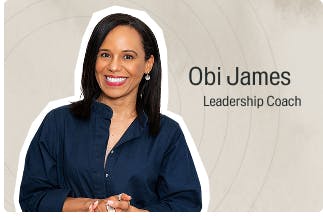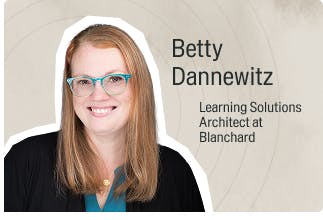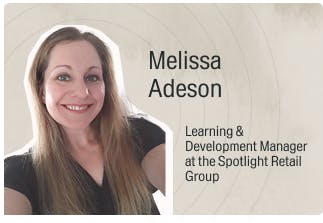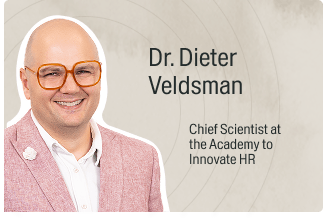Building Learning Cultures: Aligning people, purpose and performance to make learning a habit with Melody Wong
About the Guest
Melody Wong, CPHR, is an award-winning organisational development and workforce transformation leader with deep expertise in people strategy, leadership, and cultural transformation. With a background spanning global consultancy and senior corporate HR roles, Melody brings a strategic and empathetic approach to shaping future-ready organisations. She has been recognised by the Australian HR Institute (AHRI) as a recipient of the Ram Charan Practising Certification Award and winner of the 2021 AHRI Award for Excellence.
Currently based in Australia, Melody has led impactful work across sectors and geographies, including her APAC role at SEEK which was voted AFR BOSS’s Best Places to Work in 2024. A passionate advocate for inclusive, high-performing cultures, she also shares her insights as a panellist on Melbourne Business School’s leadership programs. Melody blends thought leadership with hands-on execution to empower leaders, teams, and organizations to thrive in times of transformation.
Julia: Welcome to L&D in 20, your go-to resource for all things workplace learning, brought to you by Go1. I'm your host, Julia Nieradka, Manager of Customer Success at Go1. Today on the show, I am very excited to be joined by Melody Wong, an award-winning organizational development leader, workforce strategies and culture champion.
With a global background in consultancy and corporate HR, Melody has earned recognition from AHRI as a top performing HR professional, including the prestigious Ram Charan Practicing Certification Award and the AHRI Award for Excellence in 2021. Currently driving strategic organizational development initiatives across APAC, Melody brings a deep understanding of change, leadership and organizational design, and the evolving dynamics of the modern workplace. Melody currently heads up the APAC Learning and Development team at Seek, which is recognized as AFR Bosses Best Places to Work in 2024. Melody, welcome to the show.
Melody: Thanks, Julia, and it's really great to be here.
Julia: In today's deep dive segment, we're going to discuss engaging teams along a journey of learning. And the first topic we're gonna settle into for you, Mel, is why do you think engagement is often missing and the missing link between learning, design and actual impact?
Melody: It is such a great question and something that we, we really struggle with in L&D, and I think across the globe, you know, traditional learning, we think about it as being talked at. So, you know, it's very plenary and we've actually gotta start moving from plenary to practice.
So Seek has recently introduced the concept of action mapping for learning design across all enablement teams at Seek. And the focus of action mapping really is around practice activities. One of the first questions that we ask anyone who's asking you to go for training or asking us to design training is, what is the change you wish to see? What is the impact that you want this particular training to have? 'Cause often it's not the be all, end all. There has to be opportunities to practice what they've learned in the classroom, in their daily roles, and that's a really important concept and practice, that we're trying to put into place at Seek.
Julia: I think that really resonates, Mel, and so many of us have often sat through a session maybe where there was information thrown at us and walked away thinking, what do I do with it now? So I really like how you framed that and, and are using, uh, the use of Seeks action mapping to start with the outcome first. I think that really makes learning so much more purposeful.
Melody: 100 percent. And that's what we want. We don't want to be, you know, just fulfilling a request. We wanna be real partners that help our teams, um, get impact, you know, it's, it's time well spent for them when they come for any sort of learning program with us
Julia: Yeah. That's fantastic. And I think it really flows nicely into our next question, which is just around how can L&D professionals create that momentum? So learning feels like a journey and not just a once off event. And I guess that sort of, also leads into changing the narrative from making learning and development just about compliance and it's, there's just so much more to it, especially at Seek. Right.
Melody: So true. And if we think about what we're training for these days, it's not simple. It's, you know, the, the topics that we're being asked to support on are a lot more complex. And so really thinking about space, repetition and reflection and that sort of metacognitive processing that helps shift things from short-term memory to long-term, um, retention. So when we do any of our programs now, very rarely, unless they're information sessions, very rarely are they a one and done type thing. We space out our learning. So for example, we've got a program called Coaching for Success, which goes, um, over five different sessions. So the topics broken down into five different components. Um, and that's communicated over an eight week period. So you might have two sessions a week or spaced out, you know, a session a week and, and sometime in between. Again, for practice. We want people to come, hear about, learn a couple of tips and tricks and tools, spend time practicing that, um, in between sessions and then coming back, debriefing and then picking up another topic. So that sort of space time, not too far apart, um, but you know, close enough that they can retain what they're learning. That's been our go-to, especially for things like leadership or coaching and mentoring. Those really like hard to bolt down topics that's really critical that we are being quite deliberate in how we're spacing out the learning.
Julia: That's amazing. And Seek really goes above and beyond when it comes to the dedication you have for your learners, especially that spaced repetition and reflection. I love that you brought that up, because it feels like one of those hidden superpowers of learning that we just don't talk about enough and or practice. So I imagine that it also takes the pressure off of learners trying to get it all in one sitting. They can instead build that muscle over time.
Melody: Yeah, a hundred percent. And you know, being able to practice that in your role just makes it so much more relevant. And we get feedback. We do surveys all the time before and after sessions, just to understand, you know, what's really relevant to your role. Do you have opportunities to put this into practice on a daily basis? What else is missing? And that's how we're measuring the impact of what we're doing.
Julia: It's a perfect lead into our next question, and I'm very much looking forward to hearing your answer on this one, Mel. But what is one thing that managers could do differently tomorrow to boost team engagement with learning?
Melody: This is such a great question and one that I think we struggle with quite a lot. Um, you know, just at Seek. Because leaders have limited head space, they've got so many things thrown at them. You know, often we take for granted that actually providing, um, dedicated time and space for teams to invest in themselves is at the center of it all. So we want our teams to be high performing. We want to be achieving all our stretch outcomes. Um, we, you know, we wanna provide career advancement opportunities and all that. That comes back to whether or not the leaders are supporting protected time for people to invest in their own development. So one of the, one of the things we have at Seek is a learning philosophy, which is Seeker owned, um, leader enabled and Seek supported. So as a Seeker, you would go out, think about your development needs, you know, potentially source or, you know, look for learning opportunities that suit what you want out of your career. Um, and leaders have to enable that by creating that space for them, um, or potentially even helping them source that opportunity. And then at Seek, you know, within the L&D team, but also more broadly across all our enablement teams, you know, we, we are looking at how we can continue to uplift, um, core capabilities.
Julia: Time and space. It's such a simple but profound reminder and I really like the Seek learning philosophy, Seeker owned, leader enabled and Seek supported. I feel like that is certainly one thing that other, uh, L&D professionals listening could pick up on, implement in their own organizations tomorrow because it creates that shared responsibility model where learning isn't just on the employer's shoulders, but it's embedded into the culture. And I think that's one thing that Seek does really well.
Melody: Yeah. And we all have a role to play, right? Like we can't just have our Seekers, um, completely owning all the development. We've gotta support them in that journey, and that's our role. Um, within L&D and, and more broadly as well.
Julia: Now let's get into our next segment, AI at Work, where we dive into how are you using AI to work smarter and how you're helping your teams to do the same. So Melody, in your current role at Seek, how has your use of AI evolved and how quickly have you embraced those changes? And second parts of that question, what approaches are you taking to help your team adopt AI in a meaningful way?
Melody: Uh, AI is all the rage these days, and it, it feels like it's just happened overnight. Like you woke up one morning and ChatGPT was there. So it's, you know, I think a lot of us , we're trying to make sense of what AI is and how it fits into our ways of work, right. There is a common perception that AI is going to take away jobs, but what we need to understand is that AI amplifies human capabilities doesn't, and it doesn't replace them. So if we don't embrace AI, we, we will do ourselves out of a job. So at Seek we're really lucky to have a dedicated AI team that we partner with to lift, um, capability across the enterprise. And what we want to be able to do is future proof the AI skillset for people so that they can then future proof their careers, whether they careers are linear or, you know, diagonal or upwards, whatever that may look like for different individuals. So we want to be able to provide our Seekers with the relevant skill sets that they can use to be more productive at work, um, but not just in the current roles, but also in well into the future. Within L&D, it's been a a very interesting journey embracing AI. We've had lots of fun with it. We have used it to help us write prompts and scripts, which is a huge time saver. It takes work down from four hours to pretty much, you know, 20 minutes or, or half an hour, um, to, to write a script. Um, so the powers of AI are phenomenal, and we've also used it to create some really interesting ways to bring immersive learning to the table. So, for example, um, at Seek, we use the Gallup Strengths, um, methodology. And so one of my facilitators was running a team strengths workshop and he actually input strengths into our AI tool and said, write me a story about this leadership team at a dinner party and use that in the session to just bring to life strengths. And so there are some really creative ways that the team is starting to think about how we leverage AI for its creativity and innovation, but also to help us improve our productivity.
Julia: It is fascinating how quickly I've seen your organization Seek, um, embed AI. And the teams that you've built, the processes that you've built, and for a lot of organizations that pace can feel overwhelming. And so your approach shows that speed doesn't have to mean chaos if you've got the right guardrails in place. And I also hear an underlying cultural shift that you're describing. It's not just new tools, it's about building curiosity, experimentation, and openness to change as everyday habits.
Melody: Yes. And it is a scary journey, right? So one of the big things that we're focusing on at Seek is using AI responsibly. So human judgment, critical thinking , those are really key skill sets to have as we're thinking about how we embrace and embed AI in our daily work. Because ultimately, as leaders of the organization and even as Seekers, um, our role is to keep our organization safe. And if we don't use AI responsibility, then we, we put ourselves in our organization at risk.
Julia: Moving into our Future Ready segment where we talk about the future of work and how L&D leaders can prepare themselves and their teams. Mel, can you tell us about your take on the future of work and what should L&D leaders be preparing for? What's a trend that you're currently noticing?
Melody: Well, again, AI is so front and center in all conversations these days, and that's what as L&D we need to be prepared to support, for us to do this really well, we need to have our building blocks in place. And essentially going back to basics, really good governance practices, really good data management, but also a focus on the skills that AI just can't replace. As I mentioned, um, before, we talked about critical thinking as one of the, the, the key elements or the key capabilities that we need to have. So being able to critique and evaluate the inputs and outputs of ai. That's gonna be super important as we move into the future. So, as L&D, how do we name that and aim our programs towards helping Seekers and their leaders build that skillset? We've gotta think about our role in the organization. You know, we L&D is no longer a cob webbed, backroom function that only does induction and compliance training. You know, we can and should be active supporters and, enablers of strategy, if you like. So the focus, um, very much is on helping P and C teams rethink workforce strategies more broadly, you know, which is built by borrow bot and balance. And we've got a, a really important role to play in the building element of workforce. So really helping Seekers think about not just the skills that they need for today, but the skills that will carry our, our organization through, um, the future. And that pace of change is so rapid at the moment. So we've really gotta stay on top of what the markets are saying and doing what the research is. You know, all the industry trends that are coming out. Like we've really gotta be bleeding edge, um, with some of the stuff if we're gonna be able to support our teams effectively, um, and upskill them so that they are ready to face into challenges of the future.
Another really big thing that we're noticing in L&D is that people are so time poor. Like, you know, the, the environments that we're working in is changing rapidly. So the way we deliver learning needs to also shift with that. It can no longer be, oh, we're gonna take you away for a week, um, in a room, lock you in a room and deliver training then. It's really, you know, and similar to the point earlier about space, repetition, reflection, it's really about how we connect learning with bite-sized opportunities through and through. So we might have, you know, learning that's spaced out, but in between we've gotta provide nuggets or pushes to help people really cement and concretize what the learning is all about. So bite size learning for us is something that is really important. And as we're designing new learning, we are thinking about the nudges that we put through. So it might be, you know, community of practice type forums, or it might be just a Slack push to say, hey, here is a bit of reading that you can do that adds a different dimension to what we've just talked about last week. Things like that. So that's really something that we're starting to feature a lot more, just to keep the learning front of mind for people and find space, um, that's, you know, small enough for them to absorb in a day.
Julia: All right, and now for our final segment, the Learning List. So question to you, Mel, is what are your favorite L&D related pieces of content or resources?
Melody: Uh, on Go1, you know, I love a good Blink, so that's always my go-to. Usually topics on strategy and leadership and I do love a good short cast. That's been my new thing. Um, lately I've been looking into a lot more neuroscience related topics 'cause I've got a Tween. And so the teenage brain is fascinating to me at the moment. On Go1.I love, I love my Blinks. We've talked a lot about AI today and there are a couple of really great resources out there for anyone wanting to just start on the journey and understand what AI is. So, um, one of the resources that I really love is from the University of Helsinki in Finland, and they've got a free course called Elements of AI and that's really their most popular one, on Coursera there is a guy named Andrew Ung who runs a program called AI for Everyone, which is also free and also fantastic. So for anyone wanting to, you know, immerse in AI and understand what it's all about, I'd go there.
Julia: Thank you so much, Mel. Those are fantastic recommendations. Melody, just wanted to say thank you again for joining us on the podcast today. It's been wonderful to have you.
Melody: Thanks so much for having me. It's been great to be here.
Julia: Thanks for tuning into the show. I'm your host, Julia Nieradka, and that wraps up another episode of L&D in 20. To continue the conversation, send me a message on LinkedIn through the link in the show notes. Your comments will help to inform future episodes, and who knows, maybe we'll even answer some of your questions on the show.
We'll catch you on the next episode, and until then, keep learning.
Related Podcasts

Enhancing Succession Planning Through the Art of Letting Go with Obi James, Leadership Coach

Resilient Leadership in Times of Rapid Change with Betty Dannewitz, Learning Solutions Architect at Blanchard

Beyond the Launch: Turning Great Learning Programs into Lasting Engagement Campaigns with Melissa Adeson from Spotlight Retail Group

Building thriving HR & L&D careers in the age of AI with Dr. Dieter Veldsman, Chief Scientist at the Academy to Innovate HR

Train smarter, spend less
Train smarter,spend less
Connect with a Go1 expert to explore the best training options for your organization—no pressure, just solutions that work.